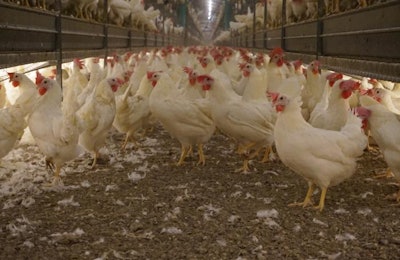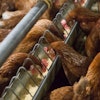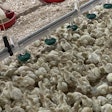
I am a retired research scientist from the USDA Agricultural Research Service (ARS) in Athens, Georgia. During my time with ARS, I conducted a wide range of research on egg-laying hens, primarily examining the effect of stress on immunity and disease susceptibility in these birds. During my final three years with the department, I conducted an in-depth literature study on different housing types as they affect egg safety and quality. While performing this study, I became aware of troublesome problems concerning free-range husbandry with respect to hen wellbeing.
I am deeply concerned with a proposal, enacted during the previous administration, which would eliminate the use of organic outdoor porches as an approved practice under the National Organic Program. This proposal has been rightfully delayed for review under the new administration and I strongly urge USDA to suspend the rule to fix the significant animal welfare problems it would cause.
Eliminating outdoor porches would increase risks
Screened-in porches are used to produce most organic eggs in the nation today. The porches serve an important purpose for animal welfare; they ensure hens can experience the benefits of the outdoors such as sunshine and fresh air, while providing an absolutely critical barrier of separation between the hens and sources of disease such as soil, rodents and wild fowl.
First, eliminating outdoor porches will increase the incidence of hen diseases. This was clearly demonstrated in the European Union (EU) in studies that found a higher incidence of, and more varied, disease in free range birds compared with those who were separated from direct contact with the outdoors. Consequently, the incidence of mortality – hen deaths – was higher for these hens exposed directly to the outdoors.
Such a discussion is especially germane when considering the devastating threat of highly pathogenic avian influenza (HPAI). Every egg producer in the nation remembers the major HPAI outbreak that occurred in the U.S. in 2014-2015, in which the virus was detected in 21 states and resulted in a loss to industry of almost 50 million birds.
The fact is, free ranging flocks will be exposed to wild birds, especially waterfowl, and any diseases these individuals may be carrying. The result of such exposure will be higher incidence of disease with consequent increased morbidity and mortality. Allowing hens outdoor access effectively compromises any biosecurity efforts implemented by the farmer and advocated at all levels of government to contain disease among poultry flocks.
Second, direct outdoor access exposes hens to predators that can injure or kill them. One 2010 study reported mortality due to predation from 0 percent to-3.7 percent in Danish flocks exposed directly to the outdoors, while indoor flocks experienced no mortality from predators. Additional studies showed losses due to predation in the U.K. and Switzerland amounted to 1.97 percent and 1.4 percent, respectively.
The current proposal being reviewed by USDA appears to be based on the premise that the more freedom the birds experience, the better their welfare will be. However, we’ve seen this model tried in the E.U., and the results are clear: More hens die without porches in place.
While proponents of eliminating outdoor porches within the National Organic Program are focused on animal welfare, the science clearly demonstrates that more hens will sicken, suffer injuries and die under the proposal currently pending at USDA. In my view as a scientist and researcher, that isn’t an improvement in animal welfare.

















